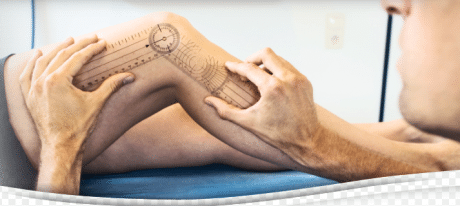With the level of intensity and training that athletes are involved in, whether at school, college or professional team sports, athletes are being sidelined from games and have more injuries and strain on their bodies than ever before.Physical therapy can provide preventative management pre injury and pain relief for many injuries related to sports performance, thus helping athletes to avoid and minimize prescription medication use or invasive surgery.
Injuries can result from fatigue and overuse, poor training, lack of hydration, inadequate warm-up, or lack of overall conditioning. Physical Therapy can help to rebuild strength, manage pain and prevent permanent damage to the athlete.
These are just a few of the sports injuries we treat at JFPT:
- Achilles Tendonitis
- Ligament sprains: hip, knee and ankle
- Patellar tendonitis/Jumper’s knee
- Plantar fasciitis
- Rotator cuff injuries
- Ruptured Achilles
- Runner’s Knee
- Shin Splints
- Sports hernia
- Stress fractures
- The Terrible Triad: ACL, MCL and medial meniscus derangement
Having a Physical Therapist on hand to help with the correct diagnosis, treatment and training of repetitive-motion athletes like golfers, baseball pitchers, tennis players, volleyball players and swimmers is vital to their long term success and care. These athletes have to constantly repeat the same movements, putting their body structures through the same stresses time after time. Giving these athletes the correct stretching and strengthening conditioning treatments and exercises can prevent future injuries and long term pain.
It is common for these athletes to develop similar injuries such as lateral epicondylitis commonly known as tennis elbow, inflammation or pain on the outside of the upper arm near the elbow or medial epicondylitis, golfer’s elbow, inflammation or pain on the inner side of the upper arm near the elbow, or “Tommy John” injury for pitchers, which is an injury to the ulnar collateral ligament of the elbow.
Our practice also serves the needs of patients with a variety of neurological conditions such as stroke, brain injury, concussions, cerebellar dysfunction, Parkinson’s disease, cerebral palsy and multiple sclerosis. At JFPT we provide individual, one on one physical therapy and exercise plans to improve balance, walking, sitting and the overall range of motion of patients who have had an accident or injury and movement impairment of any kind.
Each case will be treated with great patience, empathy and professionalism. Please don’t hesitate to contact us for further information.
2300 Westwood Blvd STE. 100, Los Angeles , CA 90064
TELEPHONE: 424 365 2083
FAX: 310 943 3532
EMAIL: jfptoffice@gmail.com
Our clinic serves the needs of individuals with a variety of neurological conditions including (but not limited to) Parkinson’s disease, stroke, brain injury, cerebellar dysfunction, cerebral palsy, and multiple sclerosis. We provide physical therapy to improve overall mobility, range of motion, balance, walking, and endurance.
Patients are often referred to physical therapy before surgery to discuss post-surgical expectations, including precautions or restrictions and to maximize strength, range of motion, and function. You will learn a variety of skills that will be important after surgery including how to safely move in bed, get in and out of a chair, and use an assistive device such as crutches or a walker. You might also receive exercises to perform at home to optimize your movement prior to surgery.
After surgery, our goal is to return you to your prior level of physical function. This includes successful return to work, recreational activities, and/or competitive sports.
Pain in your muscles, tissues, joints and bones can prevent you from reaching your optimal physical and functional capabilities. Our clinicians are trusted experts in evaluating the movement system and in treating identified movement impairments. We will empower you by providing the education you need to understand and correct your movement impairments to meet your personal health and fitness goals.
The key to their success is their expert understanding and knowledge of the fundamental causes regarding skeletal and neuromuscular disorders. This gives them the opportunity to diagnose problems correctly and to select the most suitable procedure for every patient.
Neuromuscular Physical Therapy Definition
Neuromuscular physical therapy is the detection, assessment, and correction of the pain and dysfunction associated with neuromuscular diseases and injuries through the application of physical therapies, exercise , activities, and assistive devices.
Purpose
The purpose of neuromuscular physical therapy is to examine, treat, and train individuals with neuromuscular diseases and injuries in order to limit their physical disability and reduce symptoms such as pain, muscle spasms and contractions, while addressing related structural and postural abnormalities. Physical therapists will work to restore fitness and health to the highest possible degree, specifically locating areas of tissue spasm and helping to release it, finding and eliminating trigger points causing pain, and helping to restore postural alignment and flexibility. The goal of physical therapy is to rebuild the strength of tissue injured by neuromuscular disease or injuries, to restore physical functioning as much as possible, and to improve the flow of blood and lymph in the body, promoting overall health. Patients who may require neuromuscular physical therapy include people who have been injured in accidents and those who are disabled by low back pain, osteoporosis, osteoarthritis, rheumatoid arthritis, fibromyalgia, sciatica , scoliosis, heart disease , Parkinson’s disease, fractures, head and spinal injuries, multiple sclerosis and cerebral palsy.



